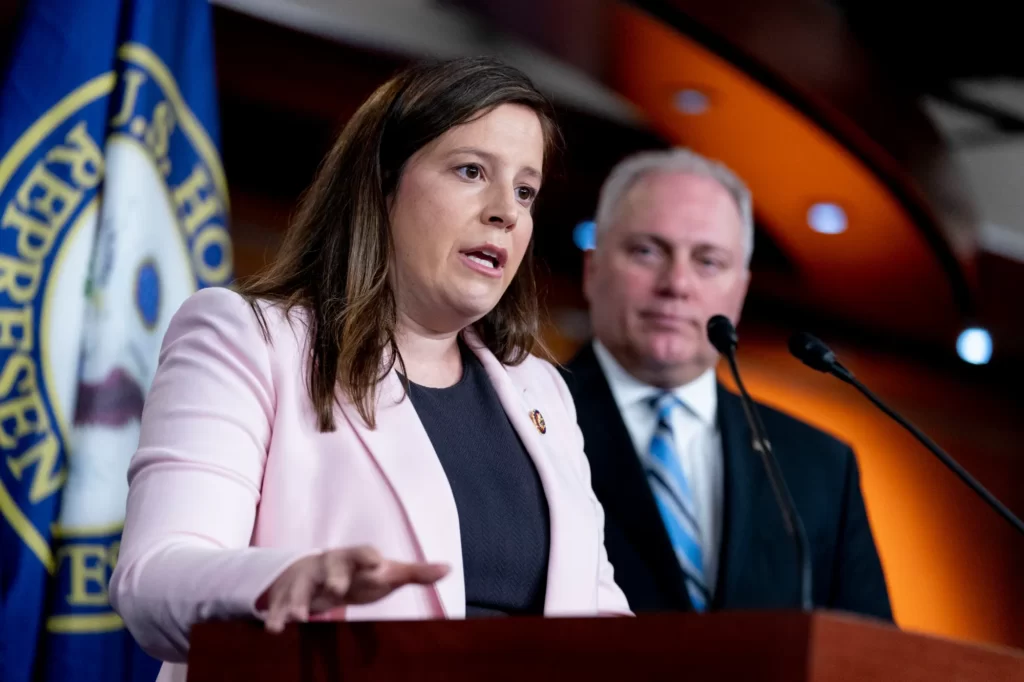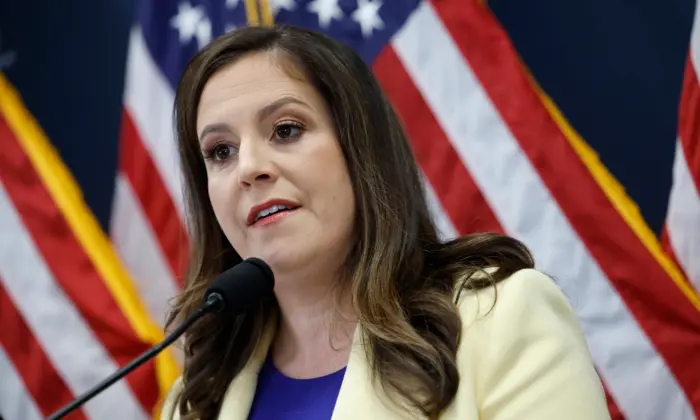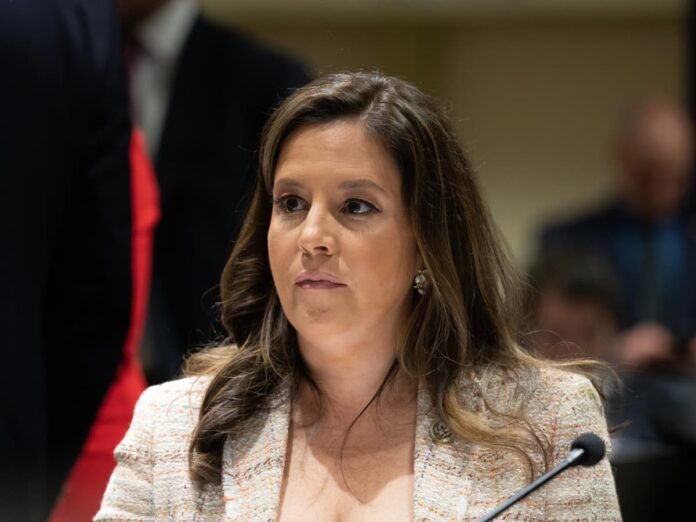Social media platforms erupted in controversy as Elise Stefanik, a prominent political figure, seemingly labeled E. Jean Carroll as a liar. The incident unfolded amidst discussions about Carroll’s allegations against former President Donald Trump, adding fuel to the ongoing debate surrounding the #MeToo movement and accountability for powerful individuals.
Stefanik’s remarks came during a press conference where she was addressing a range of issues. When questioned about Carroll’s accusations against Trump, Stefanik’s response sparked a wave of criticism. Social media users quickly amplified the exchange, expressing both support for and condemnation of Stefanik’s apparent dismissal of Carroll’s claims.
The controversy stems from Carroll’s accusation that Trump sexually assaulted her in the mid-1990s. The legal battle surrounding Carroll’s allegations has been complex, with Trump denying any wrongdoing and even filing a defamation suit against Carroll. The case has been a focal point for discussions on accountability, credibility, and the challenges faced by accusers when confronting powerful figures.
Stefanik’s comment further intensified the online discourse, with users dissecting her choice of words and the broader implications for the #MeToo movement. Critics argue that Stefanik’s dismissal of Carroll’s credibility perpetuates a concerning pattern of discrediting survivors who come forward with allegations against powerful individuals.
Supporters of Stefanik, on the other hand, contend that her remarks reflect a commitment to due process and the presumption of innocence until proven guilty. They argue that in the absence of conclusive evidence, it is appropriate to question the veracity of accusations made against public figures.
The Shocking Words Of Stefanik
The incident has reignited discussions about the role of social media in shaping public opinion and influencing political narratives. Twitter, in particular, became a battleground for contrasting views, with hashtags related to Stefanik and Carroll trending as users engaged in passionate exchanges.

Beyond the immediate controversy, the Stefanik-Carroll incident has broader implications for the ongoing discourse on sexual assault allegations in the political sphere. It raises questions about the responsibility of public figures in addressing such sensitive matters and the potential impact of their statements on survivors who choose to speak out.
In the era of instant information dissemination, social media serves as a powerful amplifier for political narratives and public sentiment. The Stefanik-Carroll episode exemplifies the speed at which a single comment can spark widespread discussions, underscoring the influence and responsibility that public figures carry in the digital age.
As the controversy continues to unfold online, it highlights the need for nuanced discussions around issues of sexual assault, accountability, and the challenges faced by survivors in the pursuit of justice. The Stefanik-Carroll incident serves as a catalyst for reflection on how public discourse on sensitive matters can shape societal attitudes and impact the broader conversations surrounding the #MeToo movement.
Amidst the social media uproar, some voices emphasized the importance of fostering an environment that encourages survivors to come forward without fear of dismissal or retribution. Advocates for survivors of sexual assault argue that public figures should approach such allegations with sensitivity and acknowledge the broader implications of their statements on the survivors’ experiences.

The incident involving Stefanik and Carroll also raises questions about the partisan nature of discussions around sexual assault allegations. In a highly polarized political landscape, where individuals often align along party lines, the handling of such allegations can become entangled with political considerations. This polarization can hinder genuine conversations about accountability and justice, diverting attention from the core issue of addressing survivors’ experiences.
Additionally, the controversy shines a light on the broader societal shift in attitudes towards accusations of sexual misconduct. The #MeToo movement, which gained momentum in recent years, has played a pivotal role in encouraging survivors to share their stories and challenging the culture of silence around sexual assault. The Stefanik-Carroll incident becomes a microcosm of these larger societal conversations, illustrating the ongoing struggle to strike a balance between accountability and the presumption of innocence.
As social media discussions continue, it becomes evident that the incident has become a focal point for examining the broader dynamics at play when powerful individuals are accused of misconduct. The nuances of addressing such allegations in the public domain are complex, requiring a thoughtful and empathetic approach that respects the experiences of survivors while upholding principles of justice.
In the aftermath of the controversy, it remains to be seen how the incident will impact public perceptions, political narratives, and conversations around sexual assault. The Stefanik-Carroll episode serves as a critical juncture for societal introspection, prompting individuals to reflect on their roles in shaping the discourse surrounding allegations of sexual misconduct and the broader implications for survivors seeking justice.

